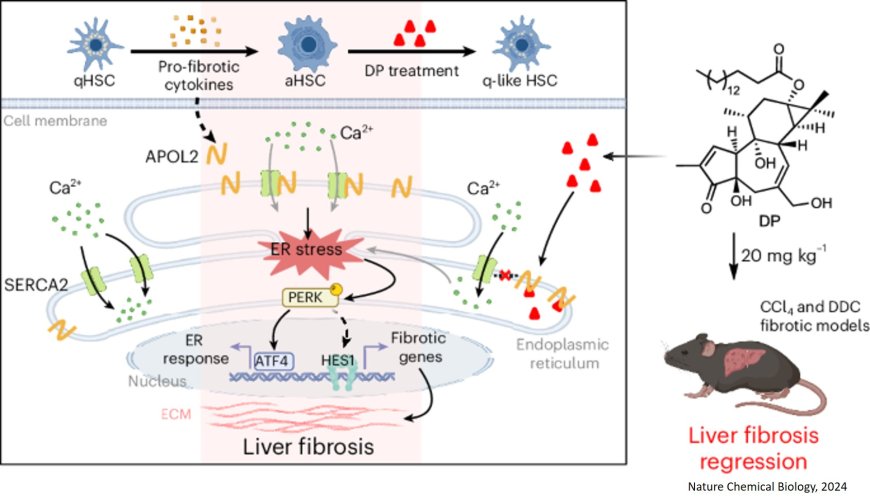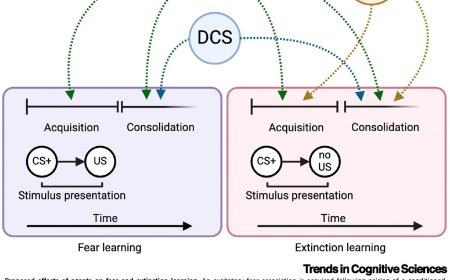Alleviating liver fibrosis using a small molecule

No effective treatment is available currently for liver fibrosis.
Using a high-content screening, the researchers identified a potent anti-liver fibrosis lead, 12-deoxyphorbol 13-palmitate (DP) and apolipoprotein L2 (APOL2), an endoplasmic reticulum (ER)-rich protein, as the direct target of DP.
Mechanistically, the authors show that upon transforming growth factor-β1 (TGF-β1) stimulation of hepatic stellate cells induces APOL2, which then binds to sarcoplasmic/ER calcium ATPase 2 (SERCA2) to trigger ER stress and elevate its downstream protein kinase R-like ER kinase (PERK)–hairy and enhancer of split 1 (HES1) axis, ultimately promoting liver fibrosis.
Targeting APOL2 by DP or ablation of APOL2 significantly impairs APOL2–SERCA2–PERK–HES1 signaling and mitigates fibrosis progression.











